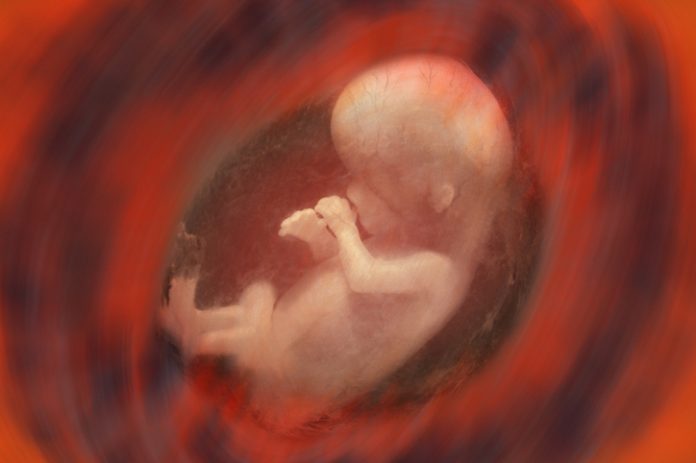A debate under the umbrella of reproductive health is heating up regarding unborn children diagnosed with genetic disorders and whether their cases are as hopeless as abortion proponents claim.
In December, Kate Cox gained nationwide attention for wanting to circumvent the abortion ban in Texas because her preborn child was diagnosed with Trisomy 18. Cox, who at the time was 20 weeks pregnant, sued the state of Texas to seek an exemption to state law so that she could have her unborn daughter aborted. Texas law bans abortion in all cases except when the mother’s life is in danger.
Trisomy 18, or Edwards Syndrome, is a rare genetic defect with typically grim prospects for survival. Many obstetricians counsel mothers to terminate their unborn children following a trisomy diagnosis. Cox’s doctors testified the pregnancy was not viable.
Cox’s complaint argued her life and ability to have future children were in danger unless the state allowed doctors to abort her unborn daughter. Cox ultimately fled Texas to terminate the pregnancy, even before the Supreme Court of Texas reversed a lower court ruling allowing the abortion.
Not a Death Sentence
As the media coverage unfolded, pro-life activists and families of children with Trisomy 18 were quick to protest the narrative that Trisomy 18 is a death sentence.
When Trisomy 18 patients are treated properly, their prospects are nearly inverse to the prevailing wisdom, which holds that 10 percent make it past the first year of life. Glenn Green, M.D., an otolaryngologist at the University of Michigan’s Mott Children’s Hospital, told lifenews.com that, based on his experience, 90 percent of babies with the syndrome make it home from the hospital, and 77 percent reach the five-year milestone.
“Giving these kids medical care makes it possible for them to live past a year,” Green told Live Action. Green is an expert on treating the airways of children with the syndrome, who often struggle to breathe.
Euthanasia?
The Cox case came weeks after another high-profile case in the U.K., involving 8-month-old Indi Gregory, who was diagnosed with mitochondrial disease, a rare genetic condition that affects the way cells burn food and oxygen to generate energy.
Britain’s High Court ruled the child should be removed from life support, despite the pleas of her parents and an offer from the government of Italy to give her citizenship, and transport and treat her.
“What I find disturbing is the erosion of our sense of decency and value of the life of a human being,” said Marilyn Singleton, M.D., an anesthesiologist and senior fellow at Do No Harm. Singleton cites additional examples of expanded physician-assisted suicide and the new practice of composting human bodies.
“Every parent wants a healthy child. Few people know how they would respond to the challenges of having a severely disabled child,” said Singleton.
Doctors Are Human
It is unethical to kill the disabled, babies or otherwise, with severe disabilities, says Heidi Klessig, M.D., an anesthesiologist and author of the book The Brain Death Fallacy.
“Health professionals should not substitute their personal feelings or biases for offering a wide range of services—medical, psychological, and spiritual—readily available,” said Klessig, M.D. “I don’t think aborting or euthanizing inconvenient people is in any way compassionate. Compassionate care for disabled people is treating them as human beings and providing them with medical care just like anyone else.”
Sometimes patients defy what common wisdom says is a death sentence.
“Death is a point of no return, whereas people declared ‘brain dead’ have recovered and some have become nurses or accountants,” said Klessig. “Doctors are not omniscient and can only make educated guesses about long-term outcomes.”
Harry Painter (harry@harrypainter.com) writes from Oklahoma.
Internet Info:
David S. Cooper, et al., “Cardiac Surgery in Patients with Trisomy 13 and 18: An Analysis of The Society of Thoracic Surgeons Congenital Heart Surgery Database,” National Library of Medicine, July 2, 2019.
Wenya Bai, et al, “Difficult Airway Management in Children with Trisomy 18: A Retrospective Single-Centre Study of Incidence, Outcomes, and Complications,” National Library of Medicine, March 23, 2023: https://pubmed.ncbi.nlm.nih.gov/36966022/
Terre Krotzer, “Video—Advances in the Care of Newborns & Infants with Trisomy 18 and 13,” Support Organization for Trisomy, July 15, 2020: https://trisomy.org/resources/video-advances-in-the-care-of-newborns-infants-with-trisomy-18-and-13/





















